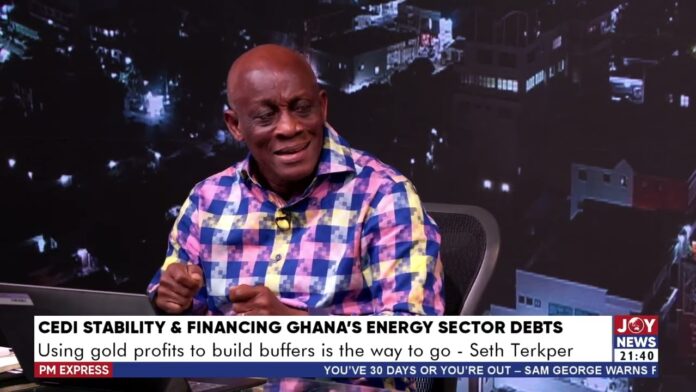Economic Advisor to President John Mahama and former Finance Minister, Seth Terkper, has cautioned that Ghana’s current economic stability is only temporary and must not be taken for granted.
Speaking on PM Express Business Edition on Thursday night, Mr Terkper stressed the importance of building financial buffers to prepare for future shocks.
“Stability is not forever,” he warned. “You cannot manage an economy continuously for four years without one crisis or the other.”
Backing President Mahama’s recent call for caution despite the prevailing macroeconomic calm, Mr Terkper said, “President John Mahama is saying things are going well, but let’s be careful. Let’s make sure that when the trend starts to reverse, we have reserves.”
He described the process of building reserves as a necessary sacrifice. “To set reserves—just as households and businesses do—is sacrifice. When the chips are down, we must fall on them to stabilise the situation.”
Mr Terkper emphasized that economic management must anticipate downturns. “That is how to sustain reforms. It’s good to stabilise, but it is better to sustain.”
On Ghana’s revenue outlook, he acknowledged that the suspension of certain import levies could have an impact.
“Our revenue today—not just tax revenue—is about 17–18% of GDP. But our tax-to-GDP ratio is only 15%,” he noted. “That’s low for a middle-income country like Ghana. Even for an African country, it should be 17% or 18%.”
He said this is why the government is seeking technical assistance to improve the VAT regime. “That’s why the president, the minister, and others have spoken about getting support to bring VAT back to where it was.”
Mr Terkper explained that some levies introduced during economic downturns were always meant to be temporary.
“We’ve had a temporary levy policy. You use them during austerity, then remove them later. These are counter-cyclical measures,” he said.
Citing the COVID-19 pandemic as an example, he noted how sectors like telecommunication and digital services experienced a boom. “That’s when you got your Financial Sector Levy. Not all sectors suffer during a crisis—some thrive, and that’s where temporary levies are useful.”
He warned that future crises, such as potential health emergencies like Mpox, must be anticipated.
“Have we put some reserves aside, learning from COVID? So that when Mpox comes, we fall on those reserves to manage?”
Mr Terkper stressed that such preparedness is not economic manipulation but sound management.
“This is not about manipulating the economy. No. You are only managing it because of the inevitable ups and downs.”
He concluded with a sobering reminder: “You cannot manage an economy without a crisis. The question is whether you are ready when it comes.”
ALSO READ:



